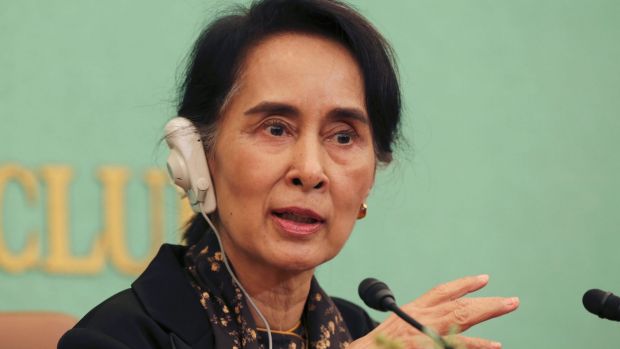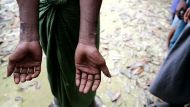Bangkok: More than a dozen Nobel peace prize winners have criticised their fellow laureate, Aung San Suu Kyi, for failing to protect Rohingyas in Myanmar's strife-torn Rakhine state.
Among the 22 signatories of the letter were East Timor's former president and prime minister Jose Ramos Horta and South African archbishop Desmond Tutu.
More World News Videos
Myanmar troops accused of sex attacks
Rohingya Muslims say Myanmar troops raped or sexually assaulted dozens of women in a remote village during a crackdown on insurgents.
The group also urged the United Nations Security Council to act to stop what it called "a human tragedy amounting to ethnic cleansing and crimes against humanity unfolding in Myanmar".
"If we fail to take action, people may starve to death if they are not killed with bullets," the group said in an unusual joint letter, adding the violence bears the hallmarks of Rwanda's 1994 genocide as well as ethnic cleansing seen in Sudan's western Darfur region, Bosnia and Kosovo.
"We are frustrated that she has not taken any initiative to ensure full and equal citizenship rights of the Rohingyas," the group said, referring to Ms Suu Kyi, who was swept into power by elections in late 2015.
Human rights groups have documented allegations of mass killings, rapes and burning of villages in Rakhine since October, when police border posts were attacked, killing nine officers.
Myanmar's government denies excessive force by its military, which has imposed a blockade of the violence-hit area.
More than 30,000 Rohingyas fleeing violence have arrived in camps in neighbouring Bangladesh in recent weeks.

The signatories urged the United Nations to "end the human crisis" facing more than one million Rohingyas, a Muslim minority in Buddhist-majority Myanmar who according to the UN have for decades been subjected to a campaign of grinding dehumanisation, including being stripped of their citizenship rights and rendered stateless in 1982.
The signatories said even if Rohingyas were behind the police post attacks, the military's response has been "grossly disproportionate".

"It would be one thing to round up suspects, interrogate them and put them on trial," they said. "It is quite another to unleash helicopter gunships on thousands of ordinary civilians and to rape women and throw babies into fire."
Meanwhile, Myanmar's government has criticised plans for a "food flotilla" to sail from Malaysia to Rakhine in mid-January with 200 tonnes of supplies, saying those behind the shipments must first seek permission.

The flotilla's organisers say that up to 200 people may travel on the ships, including NGO members, doctors, medical teams, politicians, religious leaders and crew. Malaysian Prime Minister Najib Razak has fiercely criticised Myanmar's treatment of Rohingyas, describing it as genocide.

















